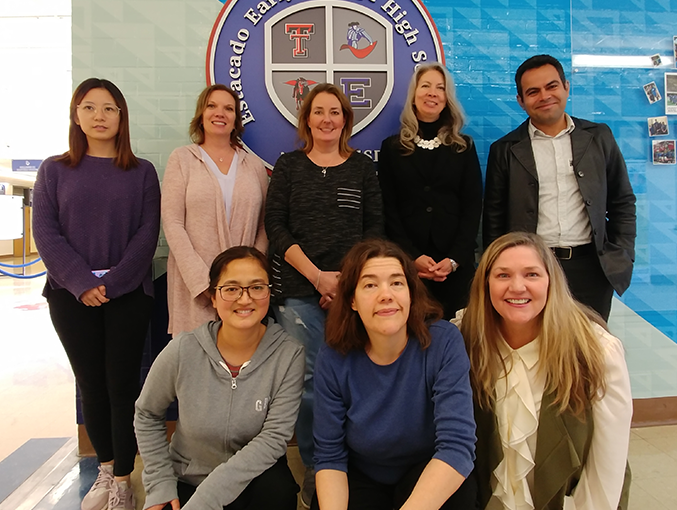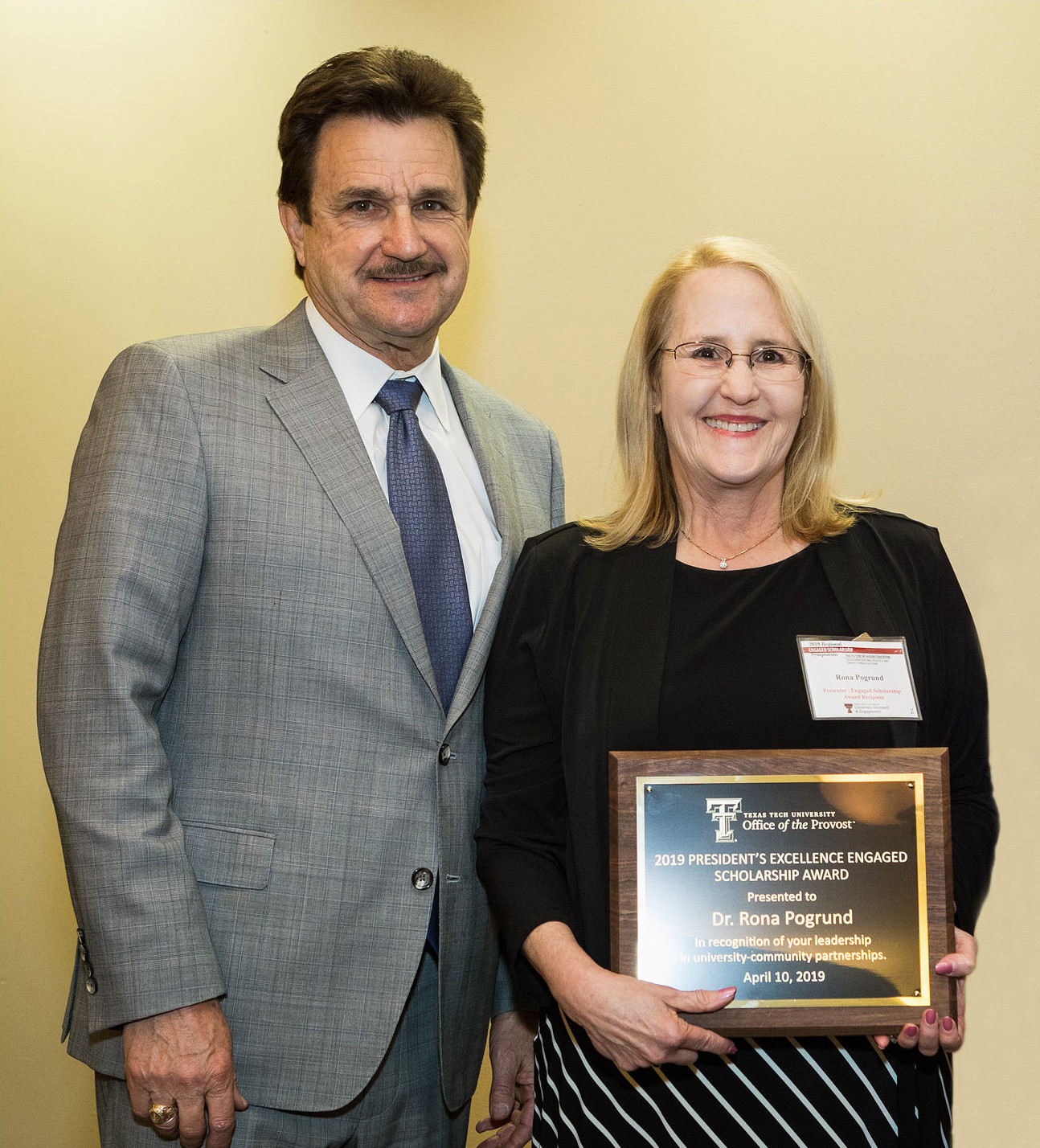Community Engagement
Drs. Mellinee Lesley and Julie Smit Win President's Excellence in Engaged Scholarship Award
As a component of the East Lubbock Promise Neighborhood grant, the Lubbock Independent School District (LISD) identified academic writing development as a significant need for K-12 students in the district and asked the Texas Tech College of Education to collaborate on providing support in addressing this need. Inadequate writing development of K-12 students has garnered national media attention over the lack of adolescent writing skills and the economic burden of their placement into developmental writing coursework in post-secondary settings. This trend is reflected in international achievement scores: one quarter of U.S. students in eighth and twelfth grade write "proficiently" (NAEP, 2011). While there is a significant research base for varied and authentic writing instruction, K-12 teachers consider these practices time intensive and irrelevant to the pressure of raising test scores. University faculty are considered out of touch with the immediate writing needs of struggling schools. In this context, literacy education scholars are turning toward engaged scholarship as an approach to bridge gaps between theory and practice to develop meaningful impact for K-12 students.

Mellinee Lesley and Julie Smit have served as "Literacy Champions" to LISD for five years. Their partnership has evolved from working with multiple schools to focus on one high school with the highest writing needs. In collaboration with the instructional coach, they investigate how English teachers engage in continuous embedded professional development to transform their writing instruction and, as a result, how ninth and tenth grade students are developing their academic writing skills. While LISD has seen a rise in rigorous writing instruction and gains in writing achievement of their students due to the partnership, university faculty and graduate students have also benefited through manuscript production, presentations at national and regional peer-reviewed conferences, and extending the work of the ELPN grant to include additional external funding.
Dr. Rona Pogrund Recognized for Work in Project SASI
A Community Engagement Project to Increase Recruitment and Retention of Professionals Working with Students with Sensory Impairments in Rural and Remote Schools
There is a shortage in rural and remote communities of professional educators qualified to work with students who have sensory impairments. SASI (Students with Autism and Sensory Impairments) was a project that tested community engagement strategies and how they can be used to enhance recruitment of such valuable professionals. Dr. Rona Pogrund, Professor of Special Education in the Texas Tech College of Education and also a recipient of the President's Excellence in Engaged Scholarship Award in 2019, was a fundamental leader of the project.

SASI involved high-impact strategies for recruitment of teachers as well as an engaged scholarship model for developing mutually beneficial partnerships between faculty and communities. The project incorporated community engagement strategies in all stages of the process, and it included a sustainability plan following the conclusion of the funding period. Thanks to the dedication of Dr. Pogrund and her team, progress is being made to provide quality education to students while also providing high-impact opportunities to valuable professionals who transform the community.
“This project was a true example of outreach and engagement through working in partnership with educators from six states who do not have the capacity to train professionals with sensory impairments to meet the needs of their students who are visually impaired, hearing impaired, and deafblind. The project led to MOUs with five of the six State Departments of Education that has resulted in ongoing engagement many years beyond the end of this U.S. Department of Education grant.”
– Dr. Rona Pogrund
Project SASI was published in the Journal of Higher Education Outreach and Engagement.
College of Education
-
Address
Texas Tech University, College of Education, 3002 18th Street Lubbock, TX 79409 -
Phone
(806) 742-2377 -
Email
educ.webmaster@ttu.edu
